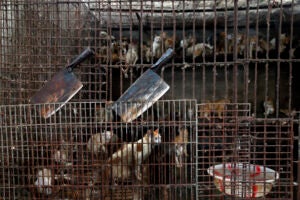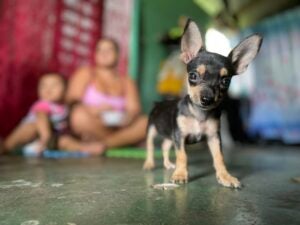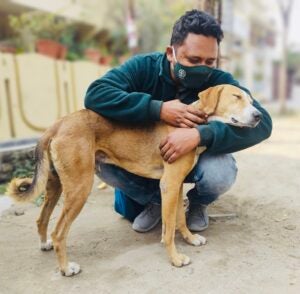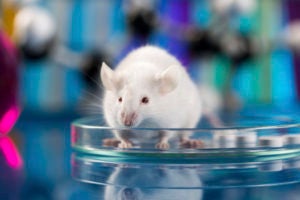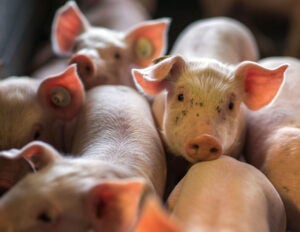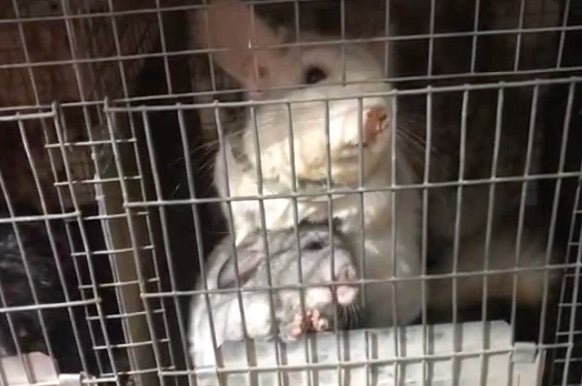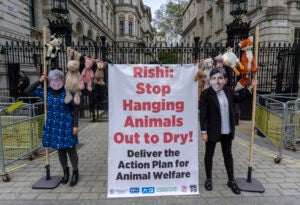
PARIS—The Organisation for Economic Co-operation and Development has, for the first time, included animal welfare in its Guidelines for Multinational Enterprises on Responsible Business Conduct, urging businesses to uphold animal welfare in their policies and practices. These guidelines, regarded as a global benchmark for ethical business practices, could have far-reaching positive implications for animals across the 38 member countries of the OECD, which collectively account for approximately three-quarters of global trade.
This move aims to speed up the adoption of business practices that respect animal welfare by multinationals—regardless of size, ownership or sector—that operate in or do business with OECD member countries. It builds on the OECD’s longstanding focus on animal welfare in its Test Guidelines Programme for chemicals and has the potential to positively impact billions of animals in farms, laboratories, in the pet industry and in the wild. The revamped OECD guidelines embrace the World Organisation for Animal Health’s definition of animal welfare, effectively recognizing the sentience of animals. Although not legally binding for industry, the OECD’s 38 signatory governments are obligated to establish a complaint mechanism. The text’s power to inspire change is significantly amplified by the inclusion of provisions that empower civil society to voice their concerns through the grievance mechanism and directly engage with enterprises, holding them accountable for their neglect of animal welfare throughout their entire value chains.
Jeffrey Flocken, president of Humane Society International, says: “When we compare the OECD’s groundbreaking guidelines with the grim reality that billions of animals endure for corporate profit, the need for immediate action becomes all too obvious. Millions of animals in laboratories are forced to inhale massive doses of chemicals without any pain relief, mother pigs on factory farms are confined in narrow metal crates that deprive them of basic movement, and millions of animals on fur farms and in egg production endure a monotonous existence in tiny wire cages devoid of any enrichment whatsoever. For the OECD’s global standards to have real impact for these animals, they must serve as a rallying cry for both corporations and governments to take action to eradicate these inhumane practices.”
Marian Ingrams, director of OECD Watch, a global network of non-governmental organizations that led civil society’s advocacy to update the OECD Guidelines, says: “The meaningful inclusion of animal welfare is one of the most positive and most significant improvements, along with the inclusion of strong language on climate change, that we have been able to secure in the updated OECD Guidelines, and long overdue. We are thrilled to have collaborated with Humane Society International and other allies to secure this important success for animals, people and the planet.”
The OECD’s latest guidelines reflect a larger trend where more investors, companies and institutions are actively prioritizing the welfare of animals. Within the last several years, many financial institutions have adjusted their public environmental, social and governance policies and internal procedures to include animal welfare. This list includes large institutions like the International Finance Corporation (IFC), Rabobank and Standard Chartered. In 2011, around 50 companies committed to ending the purchase and production of eggs from caged hens. Now, over 2,000 companies worldwide have joined this pledge. The OECD’s inclusion of animal welfare is one of many signals indicating the importance of animal welfare in basic principles for good business conduct.
Download images of animals impacted by the new guidelines and used for food, entertainment, fur, experimentations and for the legal pet trade.
ENDS
Media contact: Cassie Bodin-Duval (They/them), international media relations coordinator for Humane Society International: cbodinduval@hsi.org

